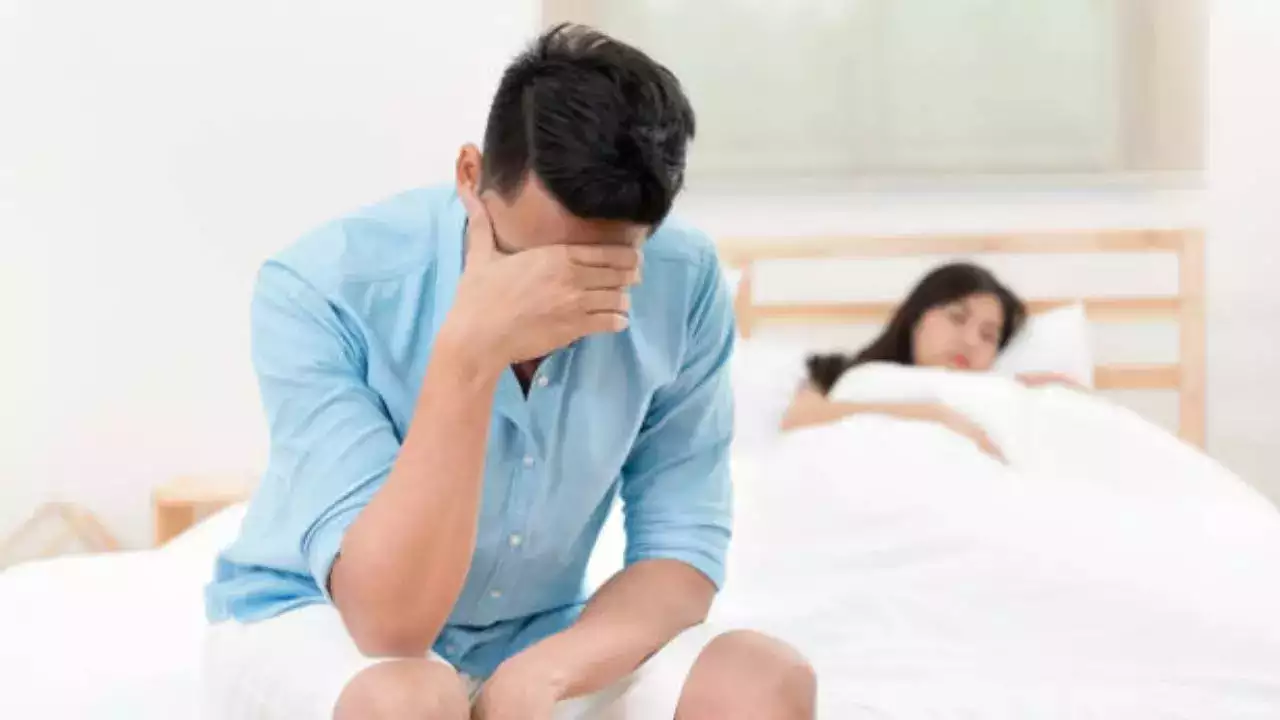
Men, Take Note: 5 Red Flags Of Low Testosterone – And Proven Ways To Recover (Image Credits: iStock)
Do you often feel drained of energy or struggle with unexpected mood swings? Maybe you’ve noticed weight gain,muscle loss, or a lack of interest in activities you once enjoyed. These could all be signs that your testosterone levels are lower than they should be. Testosterone, a hormone crucial for muscle mass, energy, mood, and libido, plays a vital role in overall health.
We spoke with experts, including Dr Shyam Varma, Consultant Robotic Urologist at Kokilaben Dhirubhai Ambani Hospital, Mumbai, and Dr Geeta Shroff, Director of Nubella, Center for Women's Health in New Delhi, to understand how low testosterone impacts the body and how to bounce back. Here are five common symptoms of low testosterone.
1. Increased Belly Fat and Weight Gain
Low testosterone can lead to weight gain, especially around the belly. “Obesity suppresses testosterone production by altering hormonal balance. Fat cells can convert testosterone into estrogen, further lowering testosterone levels,” explains Dr Varma.
How to Recover:
- Adopt a Healthy Diet: Focus on whole foods like leafy greens, lean protein, nuts, and foods rich in zinc and vitamin D. Avoid sugary and processed foods.
- Strength Training: Regular resistance exercises, such as weightlifting, burn fat and help build muscle, boosting testosterone levels.
2. Chronic Fatigue and Low Energy
Low testosterone can leave you feeling tired and unproductive even after a full night’s sleep. Chronic illnesses like diabetes or kidney disorders can worsen this fatigue.
Dr Shroff explains, “Testosterone regulates your energy levels. Persistent fatigue and dullness are common indicators of low testosterone.”
How to Recover:
- Prioritise Sleep: Aim for 7–8 hours of quality sleep each night to regulate hormone levels.
- Manage Stress: High cortisol levels from chronic stress suppress testosterone. Engage in yoga or mindfulness meditation to reduce stress.
- Stay Active: Regular physical activity boosts energy and stimulates hormone production.
3. Decreased Libido and Sexual Dysfunction
Low testosterone is directly linked to reduced sexual desire and activity. “This can be caused by testicular failure, ageing, or hormonal imbalances related to the pituitary gland or hypothalamus,” says Dr Varma.
How to Recover:
- Frequent Exercise: Physical activity improves blood circulation, enhancing sexual health.
- Address Underlying Conditions: Consult a physician to manage chronic illnesses or hormonal imbalances.
- Eat Right: Include foods rich in antioxidants and omega-3 fatty acids in your diet.
4. Mood Swings and Emotional Instability
Low testosterone impacts your brain’s ability to regulate mood, leading to irritability, anxiety, or even depression. “Testosterone affects psychological well-being. Low levels may make you emotionally unstable,” explains Dr Shroff.
How to Recover:
- Balance Your Diet: Incorporate foods like spinach, salmon, and walnuts, which are rich in magnesium and omega-3 fatty acids.
- Cut Down on Alcohol: Excessive alcohol consumption disrupts hormonal balance, worsening mood swings.
- Engage in Physical Activity: Regular exercise releases endorphins, improving mood.
5. Decreased Muscle Mass and Strength
Testosterone is essential for building and maintaining muscle. Low levels can lead to a loss of muscle mass and make physical tasks more challenging. “Muscular atrophy is a clear sign of low testosterone,” says Dr Shroff. “If you’re struggling to gain muscle despite regular exercise, it’s time to check your hormone levels.”
How to Recover:
- Resistance Training: Focus on compound movements like squats, deadlifts, and bench presses to stimulate testosterone production.
- Increase Protein Intake: Include lean meats, eggs, legumes, and dairy in your diet to support muscle repair and growth.
- Avoid Inactivity: Prolonged sitting or inactivity can slow down metabolic processes and lead to muscle loss.
Environmental Influences on Testosterone Levels
Age isn’t the only factor affecting testosterone levels. “Poor nutrition, binge drinking, high stress, and a sedentary lifestyle are significant contributors to low testosterone,” says Dr Varma. Sleep deprivation and chronic illnesses like diabetes can also hinder hormone production.
Low testosterone impacts both your physical and mental health, but it’s not an irreversible condition. Adopting a balanced diet, prioritizing exercise, managing stress, and getting enough sleep can go a long way in restoring hormonal balance. Dr Shroff explains, “If lifestyle changes aren’t helping, consult a doctor about advanced interventions like hormone replacement therapy. Early intervention can prevent further complications.”
Get Latest News Live on Times Now along with Breaking News and Top Headlines from Health and around the world.
